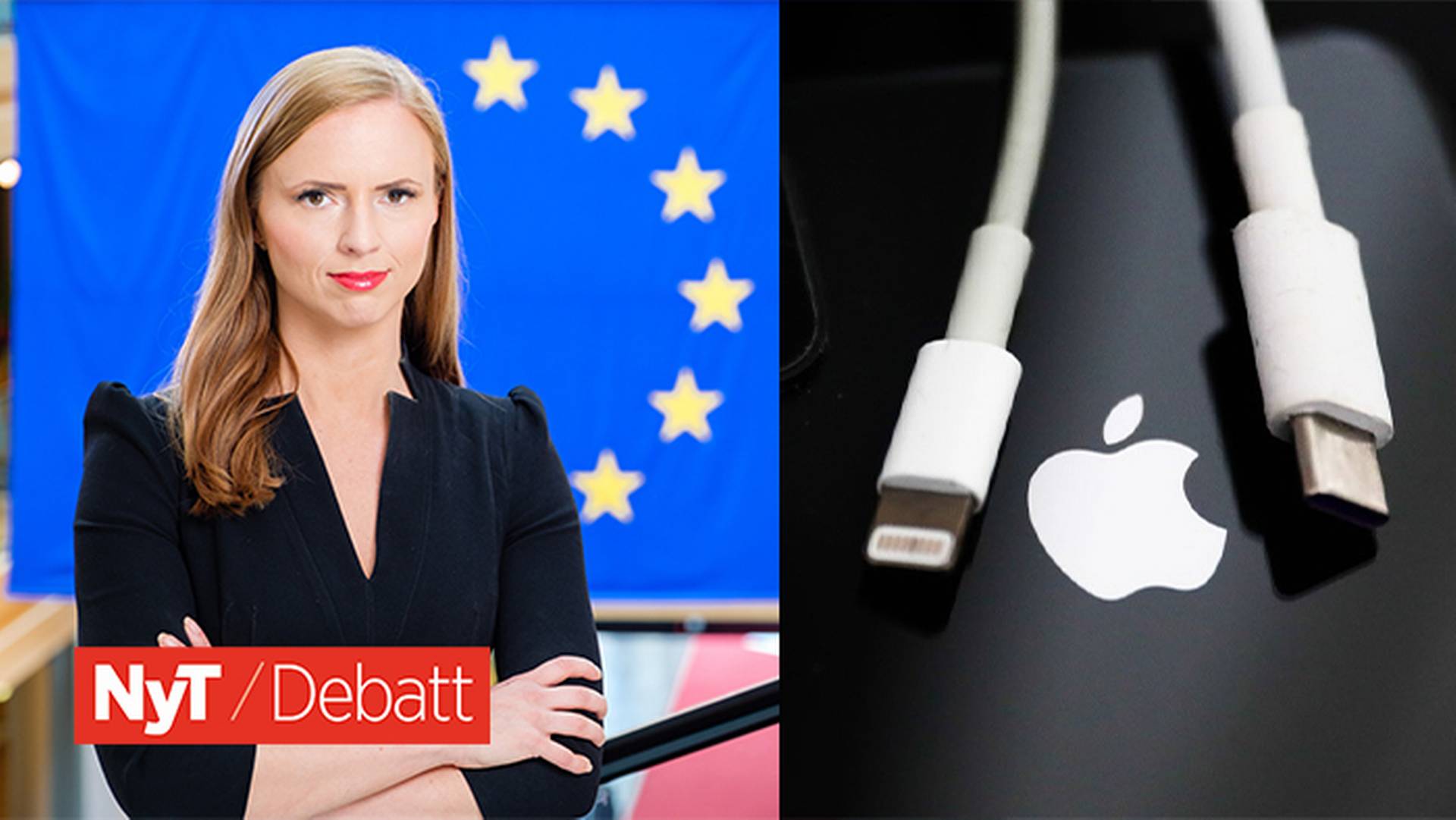“Do not let the EU ban your charger”

This is a debate article. The opinions expressed are the writer’s own.
DEBATE. Banning innovative technical solutions is hardly the right way to strengthen European competitiveness, writes Sara Skyttedal (KD), Member of the European Parliament.
The EU wants to ban almost all chargers for mobile phones, tablets and other digital gadgets. Everything but one. The aim is to reduce digital waste by forcing all manufacturers to use the same charging technology, thereby creating a situation where you only need one charger for all digital gadgets.
Possibly a commendable idea, but in practice an aggressive market regulation that risks putting a dead hand on technical development in charging technology. Banning innovative technological solutions is hardly the right way to strengthen European competitiveness.
Now in September, the European Commission presented a directive that, fully implemented, would mean that it will be banned for companies to sell, for example, mobile phones, tablets and digital cameras that are charged with any other cord than so-called usb-c. The European Commission has decided that ordinary people find it difficult to keep track of different chargers, and now wants to ban themselves until a solution. But above all, the rhetorical weight is placed on the proposal to reduce electrical waste, as fewer charging models would be needed.
This is a recurring theme in EU policy. High ambitions in some – often praiseworthy – subject are allowed to outweigh the core interest that is most affected by regulation. We saw the last term of office with the Data Protection Regulation, gdpr, which was justified by the increased protection of citizens’ privacy. That it all, in practical terms, happened at a huge price tag in the form of increased costs and more bureaucracy for both companies and civil society, was talked about more quietly.
And now we are there again. This time a bill aimed at reducing the amount of electrical scrap. At the other end of the scale is obvious innovation, competitiveness and a functioning market. It’s really just a question of whether we would have thought it a good idea if the charging technology had been cemented through political decisions 10, 20 or for that matter 30 years ago? After all, there is nothing to suggest that future developments would not be as changeable as they have been in recent decades.
Apple is now investing in wireless charging and is expected to get around any adopted legislation on cables and charging ports in that way. But who really knows what smart solutions in charging and battery technology that European companies are sketching out right now? And who says that it is precisely usb-c that is the future? And why should the European Commission, of all conceivable and unthinkable senders, be the institution best placed to decide that matter?
The EU has adopted one broad goal after another of becoming world leaders in innovation, digitalisation and the business environment. And also concrete goals to reduce the regulatory burden on our companies. The only way to do that, really, is to leave the desire to elaborate solutions in detail in other areas worth noting. It is obvious that this insight is lacking in this case.
New charging techniques, with or without cables, will be developed in the future. However, the European Commission seems determined that this is a development that must not take place in Europe under any circumstances.
Sara Skyttedal, (KD) MEPs



